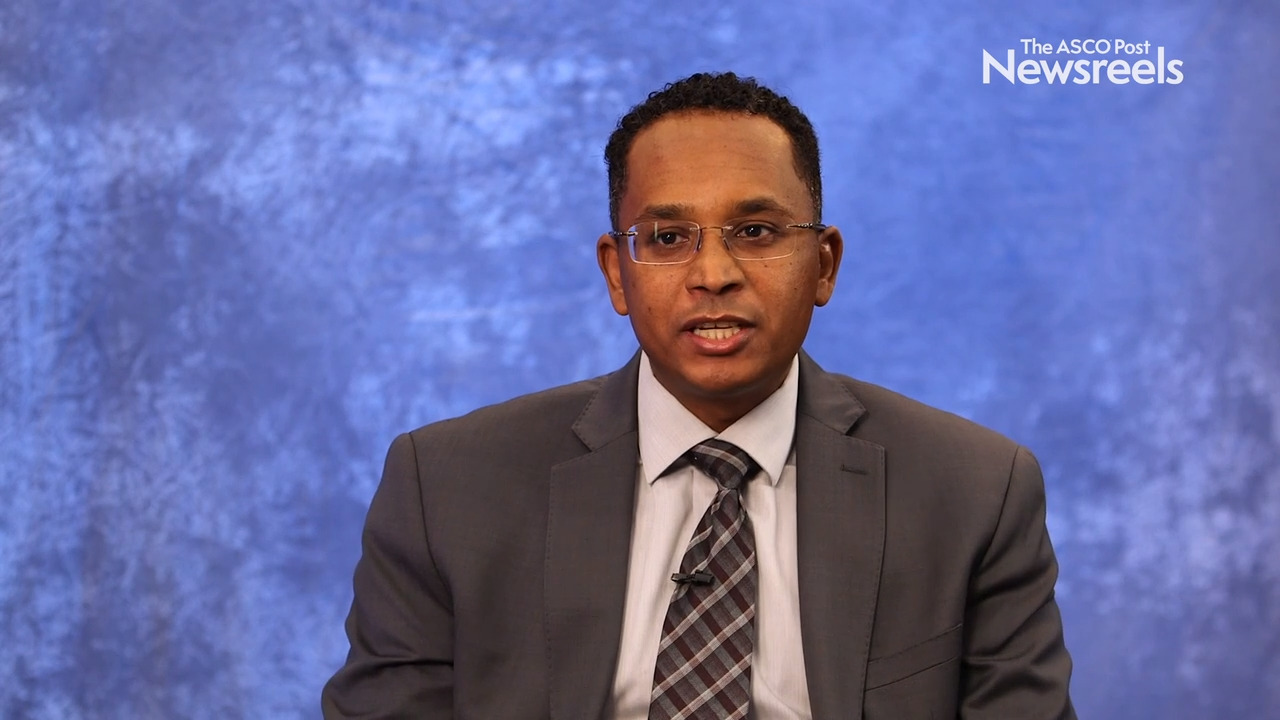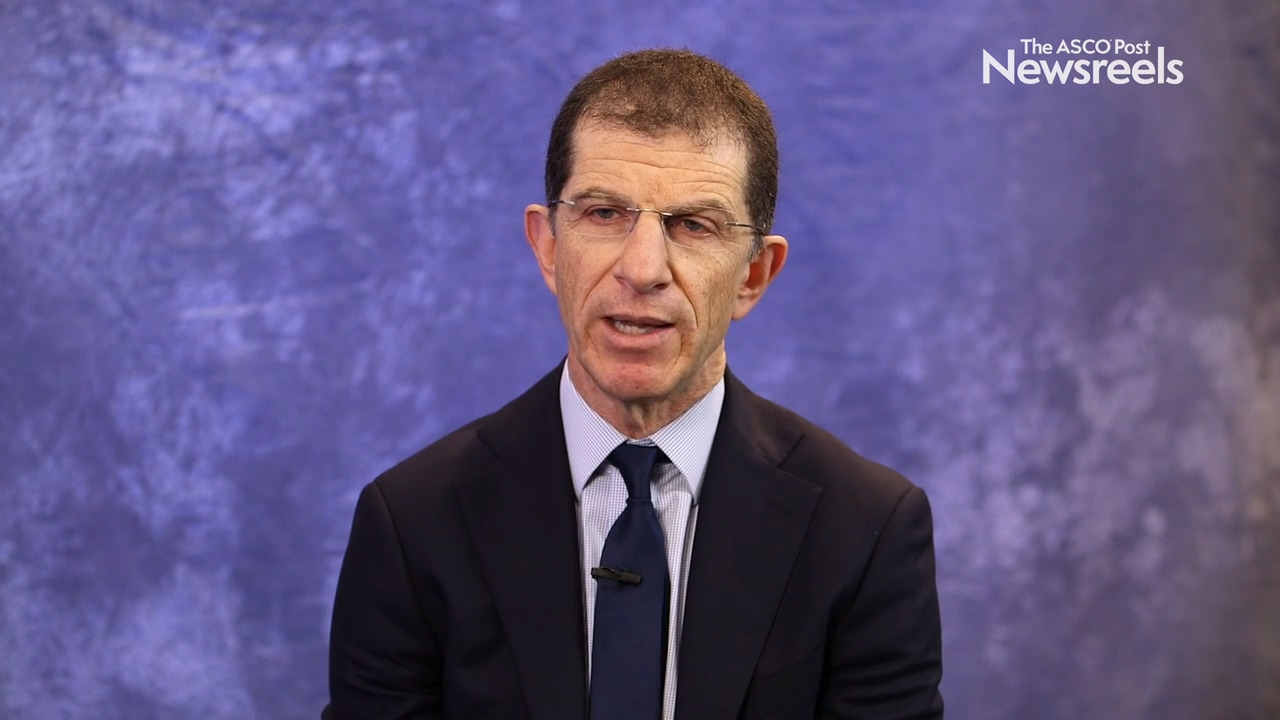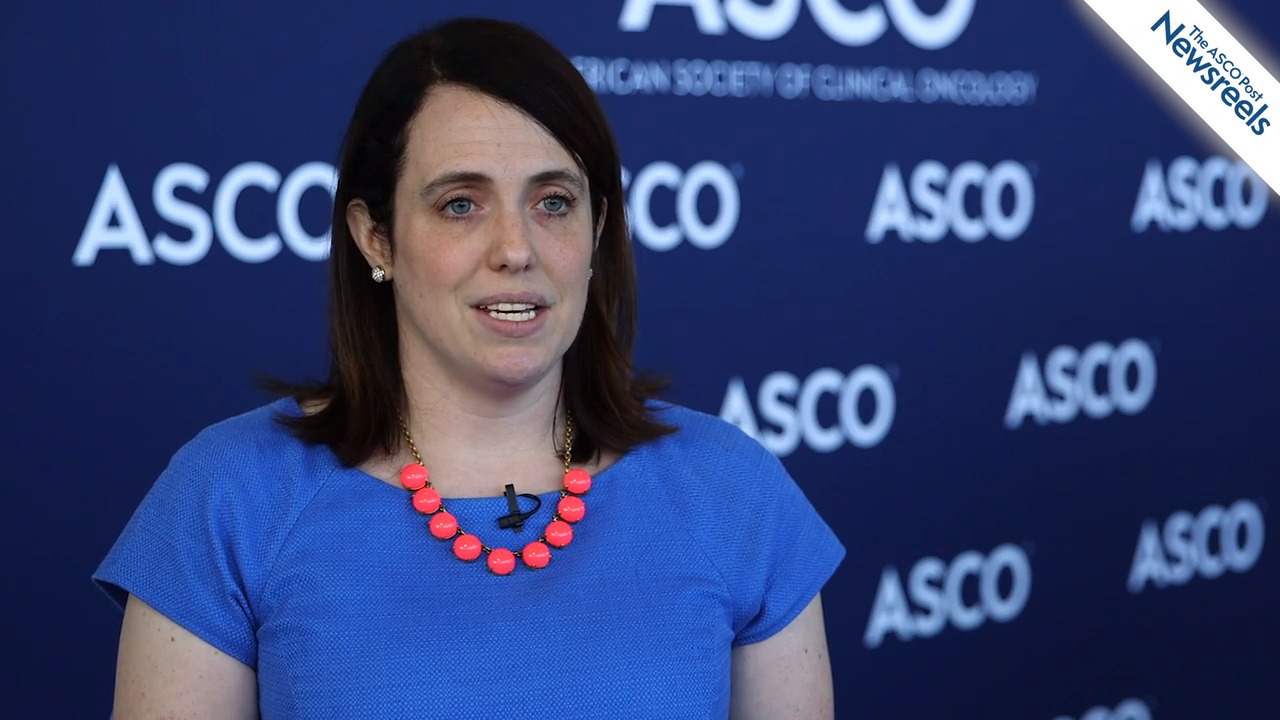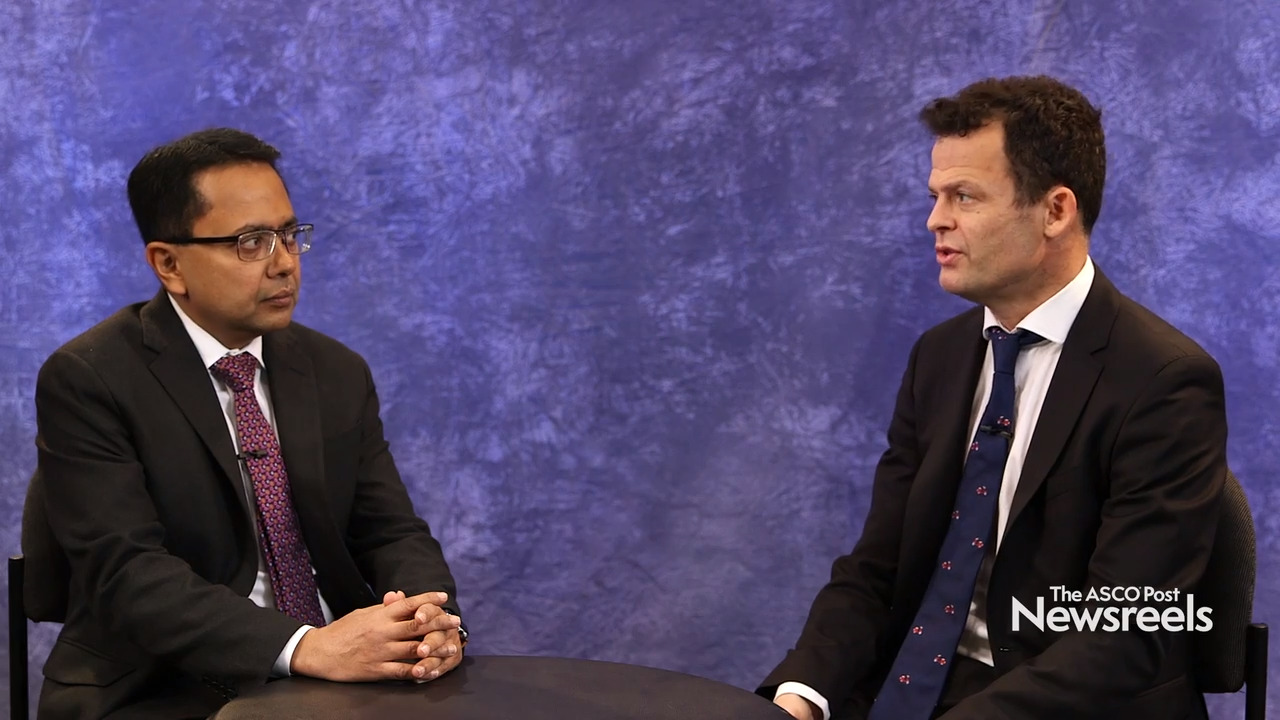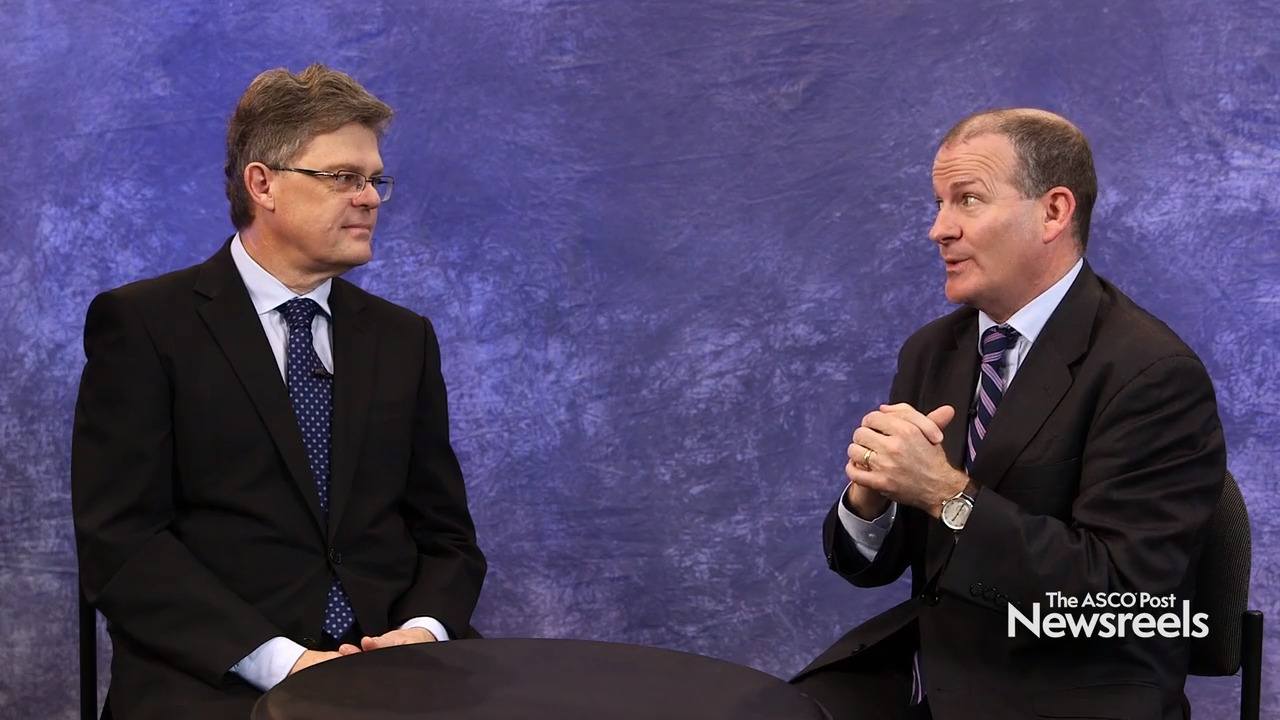Panagiotis A. Konstantinopoulos, MD, PhD, on Endometrial Cancer: Avelumab in Microsatellite-Stable and -Instable Disease
2019 ASCO Annual Meeting
Panagiotis A. Konstantinopoulos, MD, PhD, of Dana-Farber Cancer Institute, discusses his phase II study on the response to avelumab in microsatellite-stable and -instable recurrent or persistent endometrial cancer with a polymerase epsilon mutation (Abstract 5502).
Hani M. Babiker, MD, of the The University of Arizona, discusses an emerging treatment that inhibits the mitotic spindle and disrupts tumor cell growth. The method has been approved by the FDA to treat some cancers and data show improved progression-free and overall survival (Abstracts 2055, 8551, e14658, e14668, e15653, e20069, e15766).
Danny Rischin, MD, of Peter MacCallum Cancer Centre, discusses phase III results that support pembrolizumab with and without platinum-based chemotherapy plus fluorouracil as new first-line standards of care for recurrent or metastatic head and neck squamous cell carcinoma (Abstract 6000).
Kerry A. Rogers, MD, of The Ohio State University, discusses a 3-year follow-up of phase Ib safety and efficacy findings with the selective BTK inhibitor acalabrutinib and the anti-CD20 monoclonal antibody obinutuzumab in patients with CLL (Abstract 7500).
Neeraj Agarwal, MD, of Huntsman Cancer Institute, University of Utah Health Care, and Thomas Powles, MD, PhD, of Queen Mary University of London, discuss phase III study findings on outcomes with combination therapy for intermediate/poor-risk and sarcomatoid subgroups of renal cell carcinoma (Abstract 4500).
Ian D. Davis, MBBS, PhD, of Monash University and Eastern Health, and Christopher Sweeney, MBBS, of Dana-Farber Cancer Institute, discuss phase III findings from their international trial on adding enzalutamide as a new treatment option with testosterone suppression for metastatic hormone-sensitive prostate cancer (Abstract LBA2).
